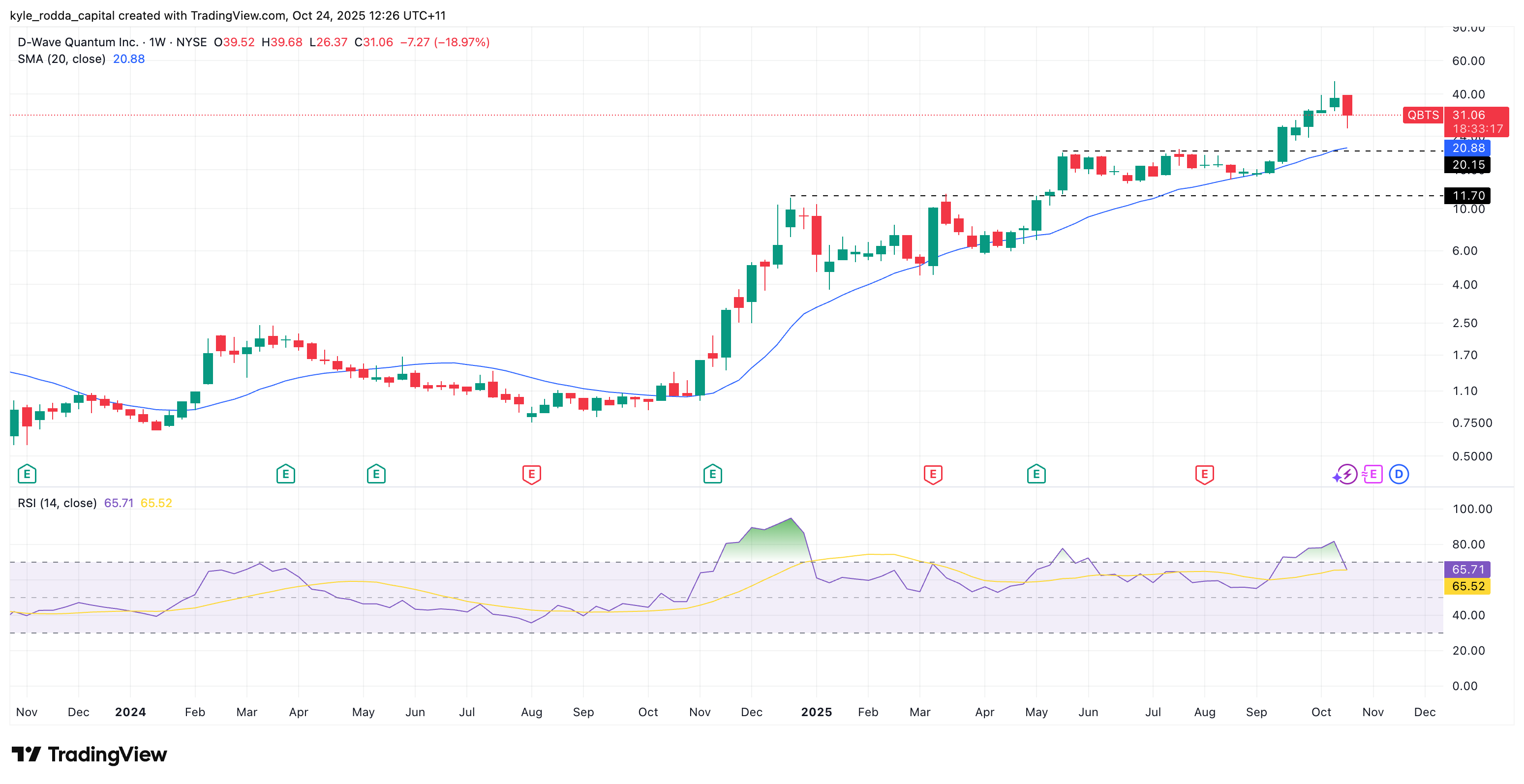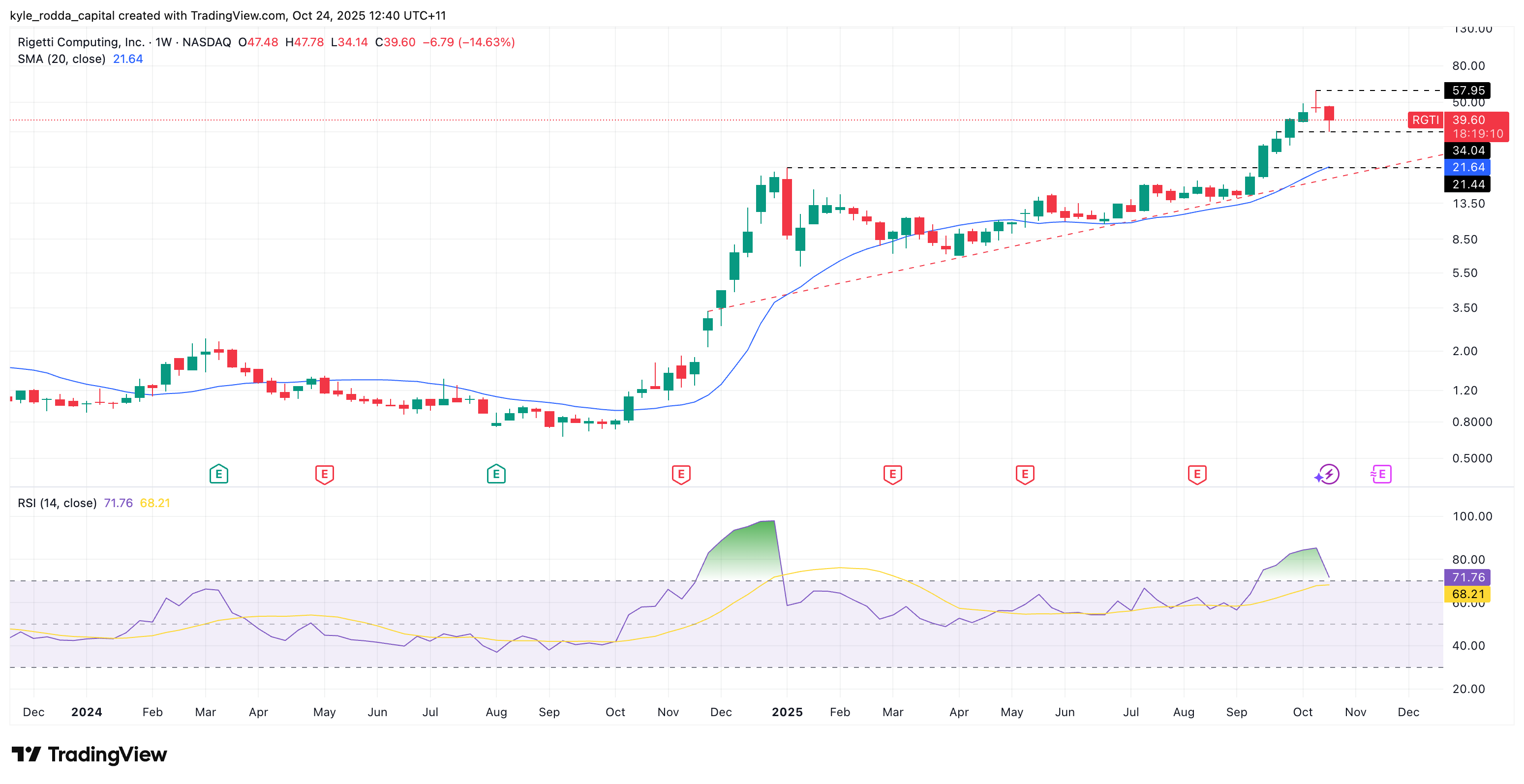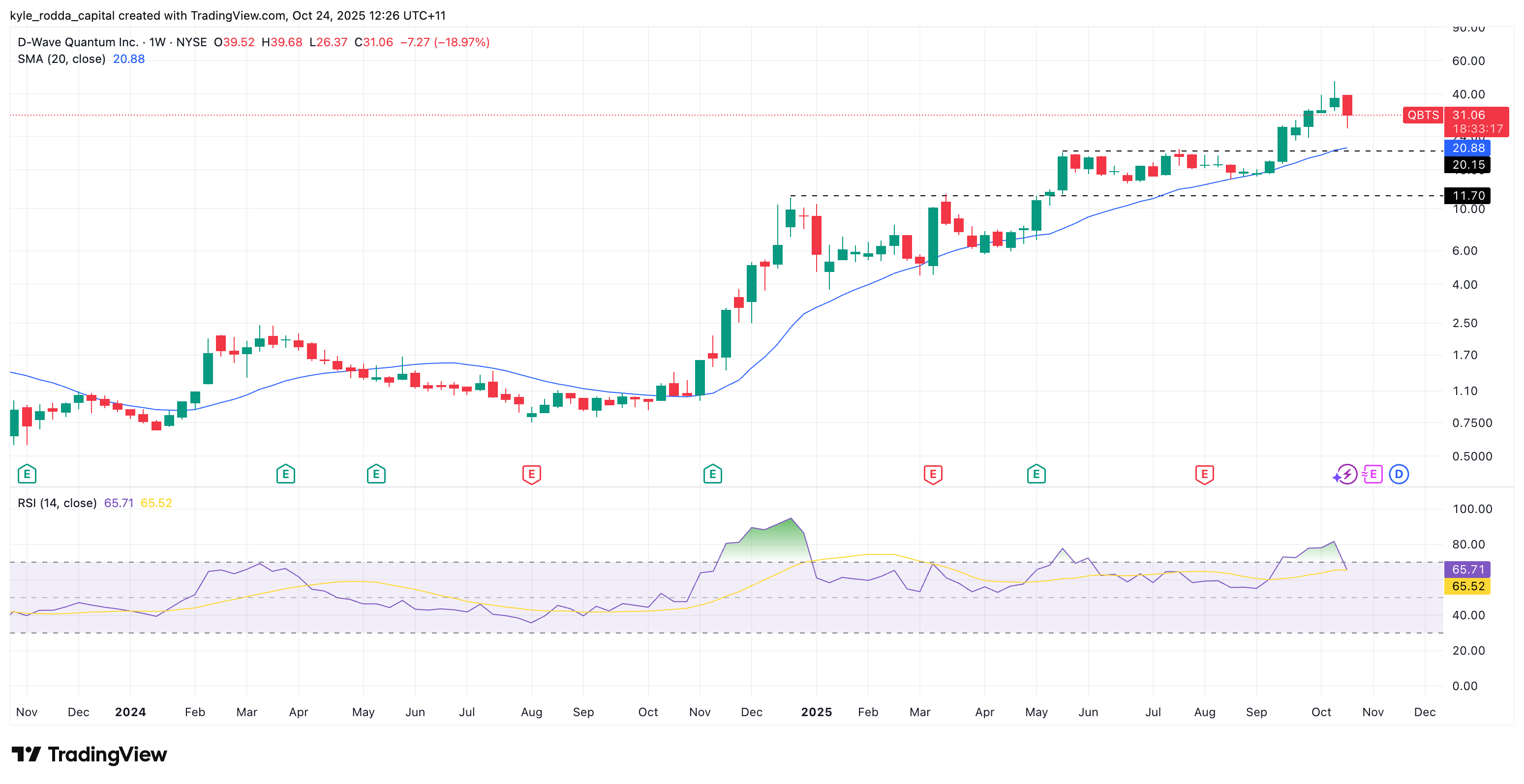Quantum Computing Stocks: A technological revolution and a market frenzy
Quantum computing stocks have surged as investors race to invest in the potentially revolutionary technology.
Quantum computing is seen by many as the next technological revolution after artificial intelligence, with its potential sparking a frenzy in quantum computing stocks.
What is quantum computing?
Quantum computing is an emerging technology that uses the strange rules of quantum physics to process information far faster than today’s computers. Instead of standard bits that store data as 0s or 1s, quantum computers use “qubits,” which can represent many states at once. This allows them to perform complex calculations in seconds that would take traditional machines years. The potential impact is enormous — from discovering new medicines and materials to improving logistics, artificial intelligence, and even cybersecurity.

Why have quantum computing stocks run higher?
Quantum computing stocks have rallied sharply over the past one to two years, driven by breakthroughs in hardware and cloud access, strategic partnerships with major tech firms, and speculative enthusiasm about their long-term potential. Companies such as IonQ, Rigetti and D-Wave have captured investor attention despite small revenue bases and ongoing losses. Institutional interest has also grown, with large funds building positions amid expectations that quantum will be the next secular growth theme after artificial intelligence. At the same time, parts of the sector have taken on a “meme stock” quality — with social media hype, retail speculation, and short-term trading surges amplifying moves well beyond what fundamentals justify. Although valuations remain elevated, the sector has benefited from the broader appetite for advanced-technology and future-computing plays.
Why has the US government taken an interest in quantum computing?
The US government now views quantum computing as a strategic technology critical to national security and scientific competitiveness. In 2025, Washington announced plans to take equity stakes in select US quantum computing firms in exchange for funding support — a move that reflects the sector’s strategic importance. The initiative follows years of research grants under the National Quantum Initiative and new legislation designed to fast-track domestic quantum development. By investing directly, the government aims to secure intellectual property and maintain leadership in a technology that could redefine encryption, materials science and artificial intelligence.
How quantum computing and AI could complement each other
Quantum computing and artificial intelligence are often discussed together because they could reinforce one another. Quantum computers are theoretically capable of processing vast datasets and performing complex optimisations at speeds that classical computers can’t match — capabilities that could make AI models smarter and faster. In turn, AI could help make quantum computers work better by finding ways to keep their qubits stable and reduce the number of errors they produce. Together, the two technologies could make it possible to solve problems that are too complex for today’s computers — from discovering new medicines and improving weather and climate forecasts to analysing financial markets in real time.
Three popular US quantum computing companies
IonQ (IONQ)
IonQ is widely seen as the leader in listed quantum stocks. Its hardware uses trapped-ion technology, considered one of the most advanced and reliable approaches. The company’s shares surged to record highs in mid-2025 after posting stronger-than-expected revenue growth and announcing new partnerships with major cloud providers. While still unprofitable, IonQ has become the sector’s benchmark, attracting both institutional and retail investors betting on long-term quantum adoption.
 (Source: Trading View)
(Source: Trading View)
(Past performance is not a reliable indicator of future results)
Rigetti Computing (RGTI)
Rigetti builds superconducting quantum chips and provides cloud-based access to its systems. The stock climbed sharply through the first half of 2025 on optimism around new US government contracts and fresh funding. However, shares later gave up some gains as investors questioned the pace of progress and ongoing cash burn. Rigetti remains one of the few firms offering an end-to-end quantum platform, but volatility has been extreme as sentiment shifts with each technical update.

(Source: Trading View)
(Past performance is not a reliable indicator of future results)
D-Wave Quantum (QBTS)
D-Wave is the oldest name in the space, best known for its quantum-annealing systems used in optimisation problems. Its shares hit multi-month highs in mid-2025 after announcing commercial deals with logistics and industrial clients. The company’s pivot toward more general-purpose gate-model quantum systems has drawn attention, though profitability is still distant. Like its peers, D-Wave’s valuation has been driven more by excitement about future potential than by near-term earnings.

(Source: Trading View)
(Past performance is not a reliable indicator of future results)
What are the risks to quantum computing stocks?
Quantum computing stocks are highly speculative and remain dependent on future technological breakthroughs. None of the major players are profitable, and timelines for commercially viable, fault-tolerant quantum computers are still uncertain. The sector suffered a sell-off late in 2025 after Nvidia CEO Jensen Huang suggested that truly useful quantum systems may still be decades away. Elevated valuations and limited real-world revenues mean investors face significant execution, dilution and sentiment risks — leaving the sector prone to sharp corrections when expectations reset.